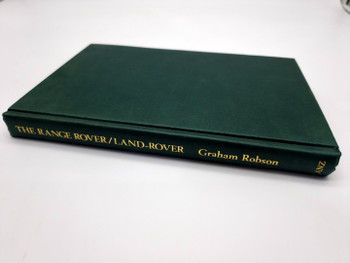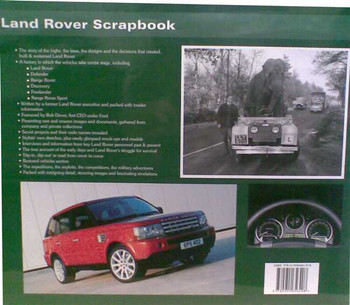Description
Author: Graham Robson, Hardbound, 224 Pages, ISBN: 9780715387863 - Third Edition, 1988 - Second-hand book in excellent unread condition !
A touch of genius? There is plenty of evidence to support the belief there is at least something of that behind the Rover four-wheel drive machines.
If it were easy to match the performance of the Range Rover and the Land-Rover, the failure of so many imitators would be inexplicable. A car that was conceived nearly forty years ago and has sold by the millions, no longer ranks as a phenomenon but in 1947 it was a thoroughly new concept and, like Hoovers, Minis, Biros and Penguins, it has become the generic name for. its type.
When Spencer and Maurice Wilks invented the Land-Rover they had no idea what they were launching; for them it was a useful stop-gap to keep the Solihull factory busy at a time when private car production was lagging behind.
As all the world knows, the Range Rover followed on the heels of its still prospering predecessor; it is of course an entirely different car, designed for entirely different markets and purposes, but the original Land-Rover design team are happy to claim it as their own as the tail-gate badge (Range Rover — by Land-Rover) confirms.
Both cars continue to go from strength to strength and it is natural that when Graham Robson revised his book on the Land-Rover the history of both cars should be combined in one book.
He retells the story of the `workhorse of the world', bringing it up to date, and continues with the story of the Range Rover, in each case describing how the machines were conceived and tested in prototypes and then how they developed: different chassis lengths, experiments with engines and a wide range of models for, virtually, every conceivable purpose. He also includes in appendices useful information on specifications, milestones of technical developments, sales and performance.
This is the authoritative account of a great technical and marketing success. The company has had its troubles in recent years, yet Rover's four-wheel-drive vehicles run on serenely. The signs are that they will continue to lead their field for many years to come.
The Author


















